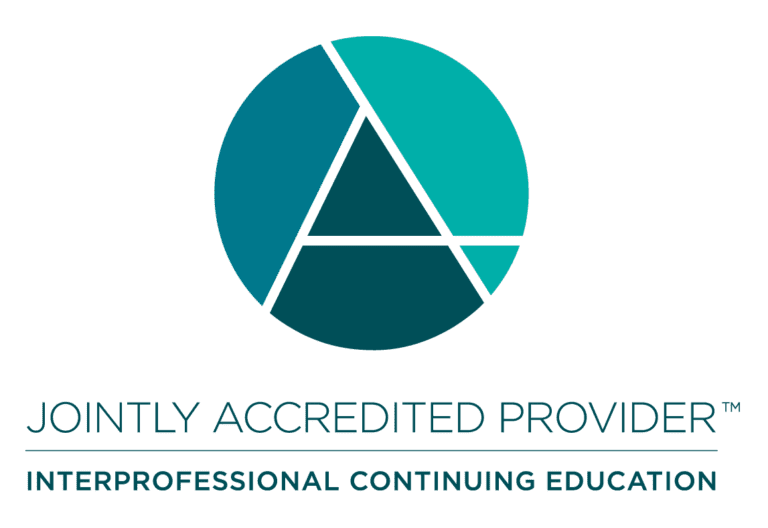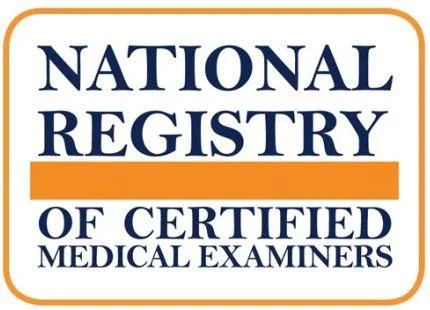NEW YEAR PROMO: SAVE $50 WITH CODE NEWYEAR50 (MUST GO THROUGH THIS PAGE BEFORE 2/28/26)
DOT NRCME Certification Training for Medical Examiners
The most effective NRCME training program designed by physicians for medical professionals. Join over 25,000+ graduates who have passed with NADME.
The #1 NRCME training program designed by physicians for medical professionals. Until 9/1/25, save $50 with code FALL50
Until 2/28/26, save $50 with code NEWYEAR50!
14 Comprehensive Modules | Accredited: Includes 18 AMA/PRA Credit OR ANCC Contact Hours
Endorsed by a Nationwide Network 25,000+ Certified Medical Examiners
This course is designed to prepare MDs, DOs, NPs, PAs, and DCs to confidently pass the NRCME Certification Exam to become Certified Medical Examiners.
Earn 18 AMA/PRA Credit OR ANCC Contact Hours
Over 22 years of expertise helping providers succeed on the NRCME exam
99% NRCME exam pass rate after completing our course
Valid for Initial and 10-Year Recertification Training
Contact us for clinic and group registration assistance
NRCME Certification Exam Prep for Medical Examiners – Maximum Features, Maximum Benefits
Up-to-Date FMCSA Guidelines & Regulations: complete and current coverage
Exceeds FMCSA Requirements: meets Initial & 10-Year Recertification training requirements
Expert-Led Comprehensive Curriculum: designed by occupational medicine physicians & industry experts
Fully Accredited: includes 18 AMA/PRA Credit OR ANCC Contact Hours
Administrator Friendly: easy to manage for multi-provider practices
Bonus: Exam Prep Guide & Proven Study Tips
14 Engaging Modules, 13 Focus Quizzes & 4 Practice Exams: cover every aspect of the NRCME Core Curriculum
Flexible Learning Formats: video, audio, and printable materials for every learning style
Printable Practice Question Bank: boosts retention and exam confidence
100% Self-Paced: train anywhere, anytime
Exceptional Training Support: responsive assistance when you need it
Bonus: DOT NRCME Reference Guide for clinical use in your practice

18 Continuing Credits
18 Continuing Education Credits – AMA PRA Category 1 Credits or ANCC Contact hours.

Sample NRCME Tests
400+ practice questions in 4 sample tests designed to replicate the NRCME certification test.

NADME Reference Manual
Use our Medical Examiner Reference Manual as a study guide and reference during exams.

Ongoing Access
Enjoy unlimited access so you can reference material leading up to the moment you take your exam.
Over 22 years of expertise helping providers like YOU pass the NRCME exam
Learning Objectives
The NADME Online Training Course ensures Medical Examiners will gain proficiency in the knowledge of:
Background rationale, mission, and goals of the FMCSA medical examiner's role in reducing crashes, injuries, and fatalities involving commercial motor vehicles
FMCSA reporting and documenting requirements
Performing, obtaining and documenting diagnostic tests and obtaining additional testing or medical opinion from a medical specialists or treating physician
Performing, reviewing and documenting the driver's medical examination
Identification of the driver and obtaining, reviewing and documenting driver medical history. Including prescription and over the counter medications
Determining driver certification outcome and period for which certification should be valid
Familiarization with the responsibilities and work environment of commercial motor vehicles operations
Informing and educating the driver about medications and non-disqualifying medical conditions that require remedial care
Curriculum Overview:
14 Comprehensive Modules | 13 Focus Quizzes | 4 Practice Exams
Expert-led curriculum designed to boost retention and prepare you to pass the NRCME certification
exam.
INTRODUCTION MODULE – NRCME Overview & Getting Started
This module provides an introduction to the NADME Training Program and the requirements for completing the DOT certification process to become a certified medical examiner.
MODULE 1 – FMCSA & The Medical Examiner’s Role
This module provides an overview of the FMCSA, the responsibility of Certified Medical Examiners and commercial motor vehicle (CMV)drivers.
You’ll gain a clear understanding of FMCSA regulations,
NRCME requirements, and how they impact DOT physical exams.
This course also addresses common job-related stresses CMV drivers face, giving you valuable insight to perform thorough and compliant DOT Fit-for-Duty physical exams.
MODULE 2 – Vision
This module covers the FMCSA guidelines and regulations on the vision standards for qualifying CMV drivers.
Learners will review key components of the vision examination, common eye conditions, and exam results that may warrant further evaluation and testing.
MODULE 3 – Hearing
This module covers the FMCSA guidelines and regulations on common ear conditions and symptoms that could impact a driver’s ability to operate a CMV safely.
Learners will review proper administration of approved hearing tests, understand the criteria for passing, and recognize otic disorders that may be potentially disqualifying.
MODULE 4 – Hypertension
This module covers the FMCSA guidelines and regulations regarding proper assessment of hypertension in CMV drivers, including how to educate drivers on its effects and the ways it can potentially impact a driver’s medical fitness for duty.
Learners will learn to apply FMCSA hypertension stages to determine whether a driver is qualified or disqualified.
MODULE 5 – Cardiovascular
This module outlines FMCSA guidelines and regulations of the cardiovascular examination and explores cardiovascular conditions that may impact a driver’s medical fitness for duty.
Medical examiners will distinguish between modifiable and non-modifiable risk factors, and recognize symptoms or findings that warrant additional testing or referral to a specialist.
MODULE 6 – Respiratory Health
This module covers the FMCSA guidelines and regulations of the respiratory history and physical examination.
Examiners will review common respiratory conditions seen in CMV drivers, including sleep apnea, obstructive and restrictive disorders, and infectious diseases.
The module also addresses potential driving risks linked to medication classes used in pulmonary and respiratory treatments.
MODULE 7 – Neuromuscular Disorders
This module covers the FMCSA guidelines and regulations regarding evaluation of neurologic function and disorders in CMV drivers.
Medical examiners will explore the cognitive demands of operating a CMV and apply this knowledge when determining a driver’s medical fitness for duty.
Learners will also review key risk factors associated with neurologic conditions.
MODULE 8 – Lost or Impairment of Limbs
This module covers the FMCSA guidelines and regulations on loss or impairment of limbs.
The guidelines focus on ensuring safety and evaluating an individual’s ability to safely operate a commercial motor vehicle despite their condition.
Topics include SPE certificates, medical evaluations, functional capabilities, and compliance.
MODULE 9 – Epilepsy, Seizures, and Loss of Consciousness
This module covers the FMCSA guidelines and regulations on epilepsy, seizures, and loss of
consciousness.
Topics include exemptions, single unprovoked seizure, controlled epilepsy, exemption requirements, individual assessments and ongoing monitoring and reporting requirements.
MODULE 10 – Insulin-Treated Diabetes Mellitus
This module covers the FMCSA guidelines and regulations on diabetes mellitus treated with insulin
and the qualification of drivers with non-insulin-treated diabetes. Including the challenges and safety
considerations of operating a CMV with a diagnosis of diabetes mellitus.
Learners will examine common medication side effects, potential safety risks for drivers, and the impact of diabetes-related end organ disease on medical fitness for duty.
MODULE 11 - Psychological Disorders
This module covers the FMCSA guidelines and regulations on psychological disorders. And explores
the importance of psychiatric health in CMV drivers and the process of performing a focused psychiatric evaluation.
Medical examiners will review specific mental health disorders and consider their potential effects on a driver’s ability to safely operate a CMV.
MODULE 12 - Drug Abuse and Alcoholism
This module covers the FMCSA guidelines and regulations the impact of drug and alcohol use on a
driver’s ability to operate a CMV safely.
It reviews FMCSA guidelines for evaluating individuals
suspected of substance abuse and provides medical examiners with criteria for determining driver
qualification or disqualification based on substance use history.
MODULE 13 - Forms and Record-keeping
This module covers the FMCSA guidelines and regulations on best practices for documenting and
verifying the completeness of a driver’s self-reported medical history.
Learners will also explore
strategies to help prevent inaccuracies and omissions in the information provided.
MODULE 14 - Preparing for and Passing the NRCME Certification Exam
This module provides a pre-test review to help you prepare for the NRCME Certification Exam.
Topics Include:
- Certification Exam Basics-what you need to know
- Certification Exam Content Outline
- Exam Eligibility
- What to expect on test day
- Preparation Tips and Test-Taking Strategies
How to Pass the NRCME Exam
We provide successful proven exam strategies to prepare you to pass the certification exam.
Your Guide to NRCME Certification
Detailed, easy-to-follow guidance leads you through the complete certification process!
Training Certificate
Your NRCME training certificate is available immediately upon course completion.
Exceeds Requirements
This program exceeds the FMCSA DOT NRCME Certification Training Requirements for Initial and 10-Year Recertification.
Your Premier Source for NRCME Certification Training
The National Academy of DOT Medical Examiners (NADME) has trained over 25,000 medical examiners since 2005. Founded by occupational medicine physicians and transportation industry experts, we’re dedicated to delivering the most effective and comprehensive NRCME training available.
Our 14-module, fully accredited online program includes 18 AMA/PRA Credit or ANCC Contact Hours and is continually updated to reflect FMCSA regulations and best practices, helping our students achieve a 99% pass rate on the NRCME certification exam and preparing them for both the test and the critical information needed to perform complete and accurate CMV Driver DOT physicals.

Joint Accreditation Statement
In support of improving patient care, this activity has been planned and implemented by the Postgraduate Institute for Medicine and The National Academy of DOT Medical Examiners (NADME). Postgraduate Institute for Medicine is jointly accredited by the American Council for Continuing Medical Education (ACCME), the Accreditation Council for Pharmacy Education (ACPE), and the American Nurses Credentialing Center (ANCC), to provide continuing education for the healthcare team.



FIND OUT MORE!
Frequently Asked Questions
How to Become a DOT Certified Medical Examiner to Perform CMV Driver Physicals?
1. Register and complete the NADME NRCME Certification Training Course and download your training certificate. This is a prerequisite to sit for the NRCME Certification Exam.
2. Using your NADME certificate of completion, register and create your account with the National Registry of Certified Medical Examiners located at https://nationalregistry.fmcsa.dot.gov/home.
3. The FMCSA will issue your 10-digit national registry number and validate your credentials.
4. Schedule to sit for the NRCME Certification Exam (exam fee is $80) via one of the approved testing organizations below:
Testing Organization Websites:
Prometric: https://prometric.com/exams/nrcme | Customer Support: 800-810-3926
PSI Exams: https://test-takers.psiexams.com/nrcme | Customer Support: 855-579-4641
Who Can Become an FMCSA DOT-Certified Medical Examiner?
Medical professionals eligible for FMCSA DOT medical examiner certification include Doctors of Medicine (MD), Doctors of Osteopathy (DO), Doctors of Chiropractic (DC), Nurse Practitioners (NP), Physician Assistants (PA), and other licensed healthcare providers indicated as eligible by their state licensing board.
To qualify, providers must:
1. Hold a valid, current medical license, certificate, or registration in the state or jurisdiction where they will perform examinations, in compliance with applicable laws and regulations.
2. Successfully complete the NADME NRCME Certification Training Course and receive a Certificate of Course Completion.
3. Register with the Federal Motor Carrier Safety Administration (FMCSA) to obtain a personal 10-digit National Registry Number.
4. Schedule and pass the NRCME Certification Exam through an FMCSA-approved testing organization.
What is FMCSA DOT NRCME Certification?
The National Registry of Certified Medical Examiners (NRCME) is a federal program that sets the standards for healthcare professionals who perform Commercial Motor Vehicle (CMV) driver physical qualification exams and issue medical certificates for truck and bus drivers.
To earn NRCME certification and be listed on the FMCSA National Registry, eligible healthcare providers must complete specialized training and pass the NRCME Certification Exam on the Federal Motor Carrier Safety Administration’s (FMCSA) medical qualification standards and regulations..
How Long is NRCME Certification Valid?
NRCME certification is valid for 10 years from the date of initial certification.
Recertification: In the ninth year, Certified Medical Examiners must complete a recertification training course and pass the National Registry of Certified Medical Examiners exam to maintain their status.
5-Year Periodic Training: At the five-year mark, the FMCSA requires a periodic training, available online at no cost through the examiner’s National Registry account. This training must be completed before the original certification expires.
Which Medical Equipment is Necessary for Performing a DOT Physical?
To perform a DOT (Department of Transportation) physical exam, a Certified Medical Examiner (CME) needs the following equipment:
Stethoscope: Used to listen to heart and lung sounds.
Blood Pressure Cuff: To measure blood pressure.
Snellen Eye Chart: For vision testing.
Eye Occluder: Used to cover one eye during vision testing.
Tuning Fork: May be used to assess hearing.
Reflex Hammer: To test reflexes.
Scale: For weight measurement.
Measuring Device: For height measurement.
Thermometer: For taking temperature.
Urinalysis Supplies: Including urine collection cups, test strips, and a reader or analyzer.
Color Vision Test Cards: For color vision testing.
In addition to the equipment, the CME will also need to be familiar with the FMCSA's (Federal Motor Carrier Safety Administration) medical regulations and guidelines for CMV (Commercial Motor Vehicle) drivers.
The CME must also be able to conduct a comprehensive physical examination, covering various aspects of the driver's health, including vision, hearing, cardiovascular health, neurological function, musculoskeletal system, and general appearance.
OFFER VALID THROUGH 2/28/26
Use Promo Code NEWYEAR50 for an Exclusive $50 Savings
Provider Insight
NADME Student Reviews
"Just what I needed"
“Training curriculum and Practice Test were just what I needed! The NADME DOT NRCME training course curriculum is comprehensive and along with the unlimited course access to train and printable test questions, were just what I needed to prepare for and pass the certification exam!”
- Dr. Mc Williams

"Priceless & appreciated"
"Thank you for helping us navigate thru the DOT NRCME process! Your assistance in helping our providers, complete the DOT NRCME training requirements and navigate the new DOT NRCME registration process, is priceless and truly appreciated!"
- Dr. Parker

"Excellent customer support"
“Thank you for all your assistance in getting our providers certified! Excellent customer support and dedicated staff helped us navigate thru the DOT NRCME Training and Certification process. We couldn’t of done it without you!”
- Dr. Solomon


